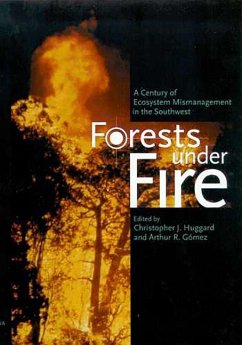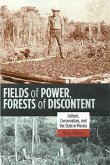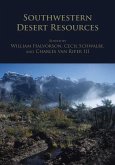The devastating fire that swept through Los Alamos, New Mexico, in the spring of 2000 may have been caused by one controlled burn gone wild, but it was far from an isolated event. All through the twentieth century, our national forests have been under assault from all sides: first ranchers and loggers laid their claims to our national forests, then recreationists and environmentalists spoke up for their interests. Who are our national forests really for? In this book, leading environmental historians show us what has been happening to these fragile woodlands. Taking us from lumber towns to Indian reservations to grazing lands, "Forests under Fire" reveals the interaction of Anglos, Hispanics, and Native Americans with the forests of the American Southwest. It examines recent controversies ranging from red squirrel conservation on Mt. Graham to increased tourism in our national forests. These case studies offer insights into human-forest relationships in places such as the Coconino National Forest, the Vallecitos Sustained Yield Unit, and the Gila Wilderness Area while also drawing on issues and concerns about similar biospheres in other parts of the West. Over the century, forest management has evolved from a field dominated by the "conservationist" perspective--with humans exploiting natural resources-to one that emphasizes biocentrism, in which forests are seen as dynamic ecosystems. Yet despite this progressive shift, the assault on our forests continues through overgrazing of rangelands, lumbering, eroding mountainsides, fire suppression, and threats to the habitats of endangered species. "Forests under Fire" takes a closer look at the people calling the shots in our nationalforests, from advocates of timber harvesting to champions of ecosystem management, and calls for a reassessment of our priorities-- before our forests are gone. Contents Introduction: Toward a Twenty-First-Century Forest Ecosystem Management Strategy / Christopher J. Huggard Industry and Indian Self-Determination: Northern Arizonaas Apache Lumbering Empire, 1870-1970 / Arthur R. GA3mez A Social History of McPhee: Coloradoas Largest Lumber Town / Duane A. Smith The Vallecitos Federal Sustained-Yield Unit: The (All Too) Human Dimension of Forest Management in Northern New Mexico, 1945-1998 / Suzanne S. Forrest Grazing the Southwest Borderlands: The Peloncillo-Animas District of the Coronado National Forest in Arizona and New Mexico, 1906-1996 / Diana Hadley Americaas First Wilderness Area: Aldo Leopold, the Forest Service, and the Gila of New Mexico, 1924-1980 / Christopher J. Huggard "Where Thereas Smoke": Wildfire Policy and Suppression in the American Southwest / John Herron Struggle in an Endangered Empire: The Search for Total Ecosystem Management in the Forests of Southern Utah, 1976-1999 / Thomas G. Alexander Biopolitics: A Case Study of Political Influence on Forest Management Decisions, Coronado National Forest, Arizona, 1980s-1990s / Paul W. Hirt Epilogue: Seeing the Forest Not for the Trees: The Future of Southwestern Forests in Retrospect / Hal K. Rothman








